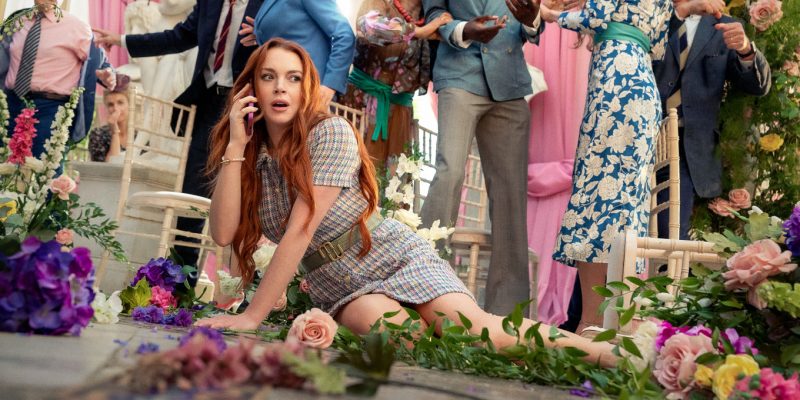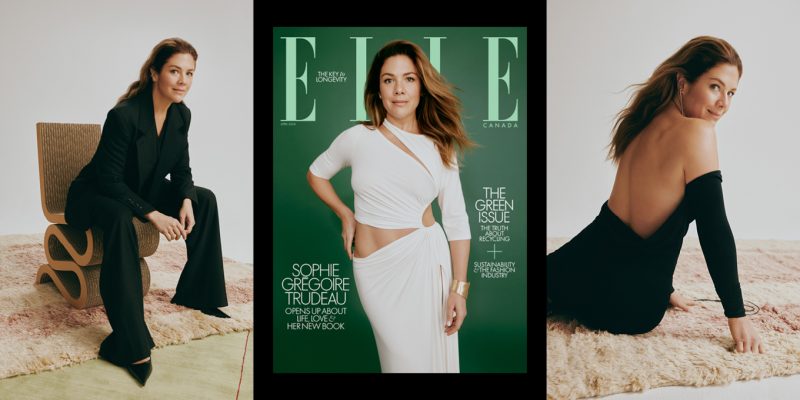Culture
Writer and Filmmaker Yulin Kuang Is Adapting Emily Henry’s Bestselling Romance Novels for the Big Screen
Now, she’s carving out a lane in the genre that’s all her own.
by : Patricia Karounos- May 10th, 2024

ZACH WALLNAU
L.A.-based writer and filmmaker Yulin Kuang has spent much of her career living in other people’s worlds. She grew up writing Harry Potter fan fiction before turning her pen to the screen and crafting short films and series, like the fangirl-inspired I Ship It, for YouTube and other streaming platforms in the 2010s. And the 34-year-old’s love of fan fiction helped her become a pro at adapting other people’s words, which is what she’s found herself doing more recently. But after a long string of adaptations—including screenplays for the upcoming film versions of Emily Henry’s mega-popular romance novels People We Meet on Vacation and Beach Read (she will also be directing the latter)—she started to get antsy. “I’ve had a long enough career as a screenwriter to have seen [projects] I love die slow deaths in development,” she says. “Everything I was doing was adaptation, and I kind of had this moment where I was like, ‘Do I have anything original left in me?’”
As it turns out, Kuang had nothing to worry about. In October 2021, with National Novel Writing Month (known as NaNoWriMo online, it’s an event that encourages writers of all kinds to write a 50,000-word novel every November) just around the corner, she signed up for bestselling author Sarah MacLean’s romance-novel workshop to help her get started, and suddenly she was rolling. “It was magical—like a fugue state,”she says, her laugh echoing over the video call. “I would wake up at, like, 5 a.m., write [my novel] until 10 a.m., then work on the People We Meet on Vacation adaptation until 5 p.m. and then keep writing until midnight. I had a full draft by the end of the month.”
 ZACH WALLNAU
ZACH WALLNAU That draft turned into her debut novel, How to End a Love Story (on shelves on April 9). The book is about an achingly beautiful romance between former classmates Helen Zhang and Grant Shepard. The pair haven’t seen each other since a devastating accident tied them together 13 years ago, but they find themselves in the same writers room working on a TV adaptation for Helen’s popular young-adult novels. (Yes,Kuang is getting a bit meta here.) It’s immediately clear that neither Helen nor Grant has healed from their past, even as they find it increasingly difficult to resist the magnetic connection between them. The novel does what Kuang has always done best: builds a swooning love story, adds dashes of giddy romcom flair and then gets deeper, sadder and angstier until you’re feeling as raw and cut open as the characters do.
“The book became an outlet—if I didn’t have to ask permission, what kind of romance would I tell?”
Deep-feeling romances have become Kuang’s brand. Coming up in Hollywood, she quickly learned the value of finding a niche, and early in her career, she began pitching herself as someone who “tells kissing stories.” Her obsession with the romance genre, she realized, can be traced back to her fan-fiction days. (Those stories, by the way, are still up online and can be found with a little Googling.) Fan fiction was how she found community in adolescence. Her family left Guangzhou, China, shortly after she was born and moved around a lot in Kansas and New Jersey during her childhood, and fan fiction—and the online friends she made through it—became the only constant in her life. Writing, she says, was never something she consciously knew she wanted to do, but she was doing it full-time anyway. Things changed when she got to college—where she studied both creative writing and international relations/politics—and was constantly writing screenplays for other people to direct. “I was handing all these screenplays off, and [people] kept fucking it up, so I was like, ‘I’m going to do it,’” she says. “My brain chemistry changed, and something in me hard-shifted from prose to filmmaking. I wasn’t satisfied with just screenwriting; I wanted more authorship over it.”
It’s that “I’m the best person for the job” attitude that led Kuang to novel writing. When the old white guys in boardrooms weren’t understanding her short-film pitches about, say, flat-chested teen girls going through pivotal coming-of-age experiences, she took her work to YouTube and made it herself. Years later, when she wanted to do more work for herself in between adaptations, she thought about making another original film but paused. First of all, it wouldn’t actually be for herself; she’d have to get approval after approval and think about casting while writing, only to risk the film not ever being made in the end. Plus, writing romance for the screen can be quite formulaic (not in a bad way, says Kuang—that structure can actually be helpful) and that wasn’t the mindset she was in. She wanted to be able to push boundaries and experiment within a genre she already knew and loved. Enter How to End a Love Story. “The book became an outlet—if I didn’t have to ask permission, what kind of romance would I tell?” she says.“I told myself it would be fine if nobody ever read it. I was like, ‘I need to write this for me—to know that I can.’ All I was worried about was pleasing myself.”
 Yulin Kuang
Yulin Kuang Price: $17
Her experience with film adaptation, including Henry’s books, helped too. Going into the novel, Kuang already had an expert understanding of story and structure. She compares her work in adaptation and original writing to a doctor honing their skills on cadavers before setting foot in an operating room.“I feel like I have excavated the skeletons of a lot of different things,” she says. “It’s the process of breaking something down and reconfiguring it—I’m looking at the anatomy of all these romances.” Writing her own, then, was a natural next step. Back in her YouTube era, Kuang described her writing as “aspirational”—something she still thinks applies today but in a more grounded, adult way. And when reading How to End a Love Story, you can feel exactly that: the hopeful sense that something better awaits regardless of pain, grief and hardship. “I had a tendency to write these heightened worlds and heightened characters; they would get a bit sad, but then they’d be like,‘Fuck the sadness,’” says Kuang. “I think I’ve grown up a bit—I’ve been through a lot of therapy, and I’ve learned to sit with my emotions. The reason I make art is to look at the world and look at the parts of myself that I feel sensitive about [to see] if anyone else feels that way too. It’s better when we’re compassionate toward ourselves and others. Succumbing to cynicism is not something I ever want to do. I’m trying to write for a world I wish to live in.”
Read more:
10 Fantastic Asian Canadian Books to Read During Asian Heritage Month
Claudia Dey’s New Novel Captures the Current Feminine Mood
Canadian Novelist Nita Prose Is Entering a New Chapter
Newsletter
Join our mailing list for the latest and biggest in fashion trends, beauty, culture and celebrity.
Read Next

Horoscope
Where To Travel This Summer, According To Your Star Sign
The stars have spoken and whether you're a Capricorn itching for Capri or an Aquarius yearning for Aguilla, this is where to venture to this summer based on your zodiac.
by : Naomi May- May 20th, 2024

Fashion
Tennis Champions Roger Federer and Rafael Nadal Climb a Mountain With Louis Vuitton
An Odyssey of rivals turned friends.
by : Allie Turner- May 18th, 2024

Life and Love
Have You Tried These Goodies for Sexual Wellness Yet?
Consider this your sign that it’s time to improve your sexual well-being—a key part of your overall health.
by : ELLE Canada- May 7th, 2024




